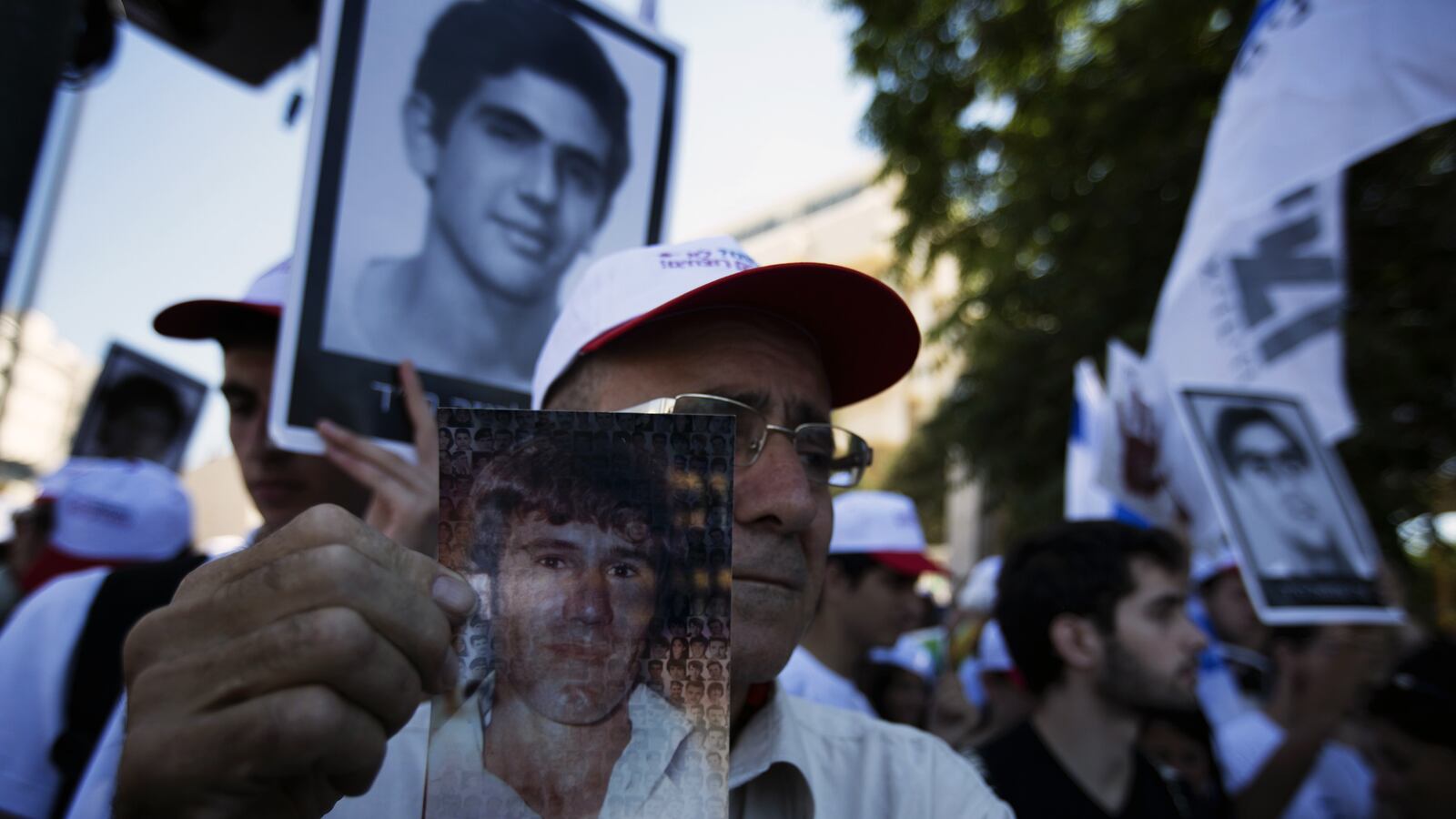On Sunday, the Israeli Cabinet agreed to release the first group of 104 Palestinian prisoners convicted of serious terrorism charges with “blood on their hands.” And after Israeli Housing Minister Uri Ariel announced the settlement construction of over 1,000 housing units in the West Bank and East Jerusalem—a plan that infuriates Palestinians—Palestinian President Mahmoud Abbas did not back out of direct negotiations with Israeli Prime Minister Benjamin Netanyahu. These actions demonstrate both sides’ seriousness towards the peace process. Although these gestures appear to be a cause for optimism, both leaders have failed to undertake a more important task—preparing the public to accept the concessions necessary for a final negotiated settlement.

According to many experts on Israeli and Palestinian affairs, a viable settlement will require two conditions: Jerusalem will have to be divided, and Palestinians and their descendants who fled Israel in 1948 will not be allowed to return. Yet leaders on each side still refuse to acknowledge publicly that their side will be required to concede these major points. On July 18, 2013, a seemingly innocent ceremony marking the opening of the Maccabi Games, an international Jewish sporting competition, rigidly staked a claim to Jerusalem. Netanyahu explained before a diverse audience, “Today all of you can proudly say: this year in Jerusalem, Israel’s undivided and eternal capital.” Publicly advocating such an uncompromising position to the Israeli population on a key issue will hardly persuade Israeli hardliners to support a peace deal.
At the same time, Palestinian officials continue to advocate unrealistic positions that threaten to derail any agreement. In early 2013, when discussing the ramifications for Palestinian refugees in Syria during the civil war, the Associated Press reported that Abbas told Egyptian journalists that he refused to accept a deal brokered by the United Nations Secretary General of allowing the refugees to resettle in the West Bank or Gaza rather than in Israel. Instead Abbas exclaimed, “We rejected that, and said it’s better they die in Syria than give up their right of return.” Such a statement only increases the hostility of the Palestinian public towards a workable resolution to this deeply complex problem.
Even in a period of potential hope, political tensions interfered with small steps towards normalcy between the two nations. When the popular soccer team F.C. Barcelona arrived in the region on a peace tour designed to reduce the gaps between the publics, Palestinian Soccer Official head Jabril Rajoub rejected an idea of inviting Israeli sports fans to watch the meet in the West Bank. Instead of looking towards the future, Rajoub remained stuck in the past.
Another skeptical audience is the American Jewish community. Netanyahu has repeatedly promoted traditional hardline claims regarding Jerusalem and security in addresses to the conservative pro-Israel lobby AIPAC. This year, opposition leader Shelly Yachimovich will speak in front of J-Street, the more liberal American Jewish lobby strongly advocating for the two-state solution. If Netanyahu would also agree to address this forum, an organization he has in the past vehemently opposed, it would speak volumes to the American Jewish public and the international community about his commitments to the peace process.
On both sides opponents of a peace agreement have organized rallies and boycotts to mobilize their supporters. If Abbas and Netanyahu were truly dedicated to reaching a peace agreement, instead of remaining silent, they would both set up public rallies to bolster support. While politically unrealistic, how incredibly symbolic would it be to hold a joint rally with both Netanyahu and Abbas in Jerusalem supporting peace?
In his book Missing Peace about the Oslo peace talks, then-lead U.S. negotiator Dennis Ross explains one of the reasons for the failure of the peace talks: an inability of both sides to rally public support for an agreement. Although both sides have taken courageous steps to begin negotiations, they are still following a familiar pattern of not mobilizing domestic constituencies in favor of a peaceful compromise. Too much is at stake to risk another failure.





